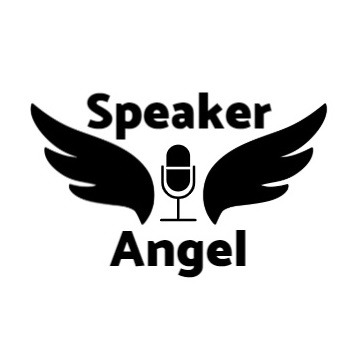Have you ever wondered how to become a TED mainstage speaker?
Every year in April, the annual TED Conference is held in Vancouver, British Columbia, Canada. One of the most beautiful cities in the world – home of the 2010 Winter Olympics and over 500 feature films, owning the name, “Hollywood North”.
Most people know of TEDx, but few understand there is actually a main mothership event that is the notorious TED, not to mention begin to explain the difference.
Read more about the difference between TED and TEDx in this post.

TED costs $10,000 to attend, and has previously been capped at 1,500 attendees which sells out far in advance. This price and exclusivity is part of the reason why TEDx exists – a locally and independently held TED-like event.
People from all over the world want to bring the inspiration of TED to their communities in order to provide a platform for change and make an impact themselves.
So how do you actually become a TED main stage speaker?
They actually have an open call for ideas that closes on May 29.
Of course you have to have a great idea that has the potential to change the world. But the simplicity of the TED public application communicates so much about what the TED team seeks.
The application requires answers to just two questions and submission of a one minute video.
Question 1: In one or two sentences, what is the main idea you want to share?
One or two sentences! Yes. In order for a high achiever to isolate their one idea in this way, they must reduce the idea down to something so concise and simple. It may seem counter-intuitive, but it is a powerful task.
I love Jeremy Gustche’s quote about innovation. He is the founder of www.TrendHunter.com and www.FutureFestival.com.
“You don’t need a big idea, you need a little idea that you can make BIG.”
And that’s what they are looking for.
When I meet people at conferences, it usually takes 5-6 questions before they get down to what they really do.
For example, I just spoke with Dawn Mahan (pictured below) about this after meeting at a speaker/author conference lately. She’s an expert in the project management realm, and the founder of www.PMOtraining.com and www.BlueIsisLLC.com.
I asked her what she is most passionate about within her work – what would she focus more time on if possible. She said speaking and helping more teams via her reputation as a “Corporate Chaos Expert.”

After a series of questions, she revealed that what she ultimately does is create a map for the future. She give teams a “helicopter view” rather than a street-level individual perspective. This empowers leaders and provides them the confidence required to move forward and deploy the systems success.
Her idea title would be something close to “Confidence from a Helicopter View”.
That is what TED is looking for. A simple concise idea.
Question 2: What is your occupation or your passion related to your talk idea? Why are you the most qualified person to share this idea?
The second and final question provokes speakers to look into the mirror. Are you the right person to give this talk?
I was chatting with another speaker who is a thought leader in artificial intelligence and bias testing in digital products. She sent over her TEDx pitch draft for me to review. I was horrified to read that it was about anxiety. She’s a young female thought leader in the sphere of AI testing and improvement. I want to see a pitch about that!
Most speakers could do one of 10 different talks. But which is the absolute right one for you? There is a full blog post about this here, how to choose your TEDx Idea.
So keep the credibility aspect in mind. Could someone else do this talk better than you? Unless you are confident about your answer, you have the wrong idea.
60 second Pitch Video
If you can answer those first two questions, now it’s time to prepare your video. It’s hard to say exactly what TED is looking for in the video, but I’ll speak to this from my TEDx curation experience.
Don’t waste time introducing yourself or saying why you’re the one for this idea – that’s what the second question is for. If you can quantify why it’s a valid idea by saying things like, “Over the last 25 years, we’ve worked with elepants in Kenya, and last yearmy team and I had an epihpany…”, that’s fine. But don’t list your credentials.
Get right into what the idea is. If you can use a short story about where it came from or one of the most transformational moments in your career that helped you understand the idea, great.
But keep it simple. Don’t make the idea about you, your journey, and certainly not about your book or your business. Keep any mention of that out of the video! This is a red flag for TED/TEDx event curators.
TED is all about the community. They are looking for good ideas worth spreading that can disseminate into their online audience, inspire others for action, and change the world.
Comment below about what your TED main stage one or two sentence idea would be.
If you haven’t joined our Speaker Angel FB Group yet, join other speakers who aspire to become great, land more stages, and scale their impact.
Thank you!
Jake



Recent Comments